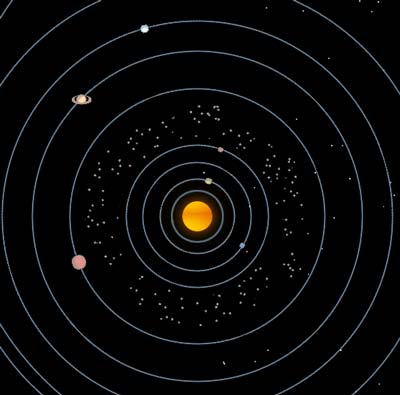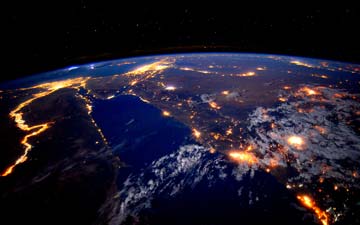What is an Astronomer
Here at the WPO the number one question asked is what is it like to be an astronomer. This article will look at different definitions of what an astronomer is. We can start with what an astronomer is not. An astronomer is not an astrologer even though we get called that all the time. Here's the key difference:
Astrology: An astrologer studies how the movement of the Sun and planets against the fixed stars affects our lives.
Astronomy: An astronomer studies how celestial bodies affect each other.
The basics of modern astronomy were born in the mind of Isaac Newton who developed a formula for gravitation and his famous three laws of motion. The last scion of astronomy who was both an astronomer and astrologer was Kepler, who paid for his astronomical investigations by casting horoscopes for the crowned heads of Europe.
The next distinction is between nighttime astronomer and arm chair astronomer. Both Einstein and Stephen Hawkins explored the laws of the universe but only from the comfort of their homes and university offices. A total eclipse of the Sun was required to make observations proving that the Sun's gravity bends light—essential to prove Eisenstein's theory of gravitation. But Einstein did not travel to a total eclipse site nor did he make any observations. He merely used the observations of other astronomers who were there to prove his theory which made him an overnight international superstar in physics. Kepler proved that the planets revolve around the Sun not the Earth by borrowing 20 years of Tycho Brahe's planetary observations to prove it. Scientists who use the observational data of other astronomers are called cosmologists.
What if you teach astronomy but don't observe? What if, like Jack Horkheimer, you have a famous and beloved astronomy television show but don't operate a telescope? And what if you are a planetarium director like Neil deGrasse Tyson, who writes books and hosts TV shows about astronomy, but doesn't actually look through a telescope? All these are examples of real astronomers.
Perhaps a real astronomer is one who has an advanced degree in astronomy. Yet, David Levy one of the most famous astronomers who co-discovered Shoemaker-Levy that crashed into Jupiter and discovered many other comets and had an asteroid named after him and currently is Senior Editor at Sky Telescope has 2 degrees in English Literature. Even the great Edwin Hubble was trained as a lawyer which was considered by his father a much more honorable profession than being a scientist.
The last distinction is between professional astronomer and amateur astronomer—a distinction that is far fuzzier than at first blush. Obviously, a professional astronomer is a real astronomer since he or she is paid to do astronomical research. So does that mean that Copernicus, Kepler, Galileo. Herschel, and Percival Lowell were not real astronomers because not only were they not paid to explore the heavens they actually raised money themselves to pay for their instruments and publications? Most professional astronomers teach at universities with their astronomical research paid for by private endowments or government grants. Some famous astronomers like Gene Shoemaker were actually trained as geologists and became planetary scientists. Robert Evans discovered over 40 supernovae visually through a telescope and yet his profession was being a minister of a church in Australia. That makes him an amateur astronomer but also a real astronomer making real discoveries.
The good news is that because astronomy is a pure science which is not required to have any practical or engineering applications, anyone who has an interest in understanding the extraterrestrial world can call themselves an astronomer.
 See an animation of the movement of planets in our solar system.
See an animation of the movement of planets in our solar system. See amazing views from space
See amazing views from space